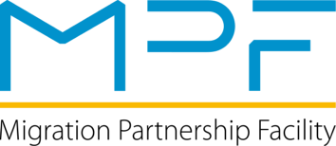This week, the ICMPD Brussels Mission welcomes the first Steering Committee meeting of the Scaling Up STEM Talent from Africa in Europe (SUSTAIN Europe), an initiative funded by the European Union through the MPF of ICMPD and implemented by the Seefar Foundation. The project runs from September 2024 to May 2027 and focuses on establishing a replicable model for skilled migration between Nigeria and the EU, particularly targeting STEM graduates.
Project goals and initial achievements
Since starting earlier in the year, over 1,000 Nigerians applied interest in joining this new legal labour mobility initiative. Behind these numbers is a bold and strategic effort to create sustainable migration pathways that not only address European labour shortages but also strengthen talent ecosystems in countries of origin.
At its core, the project aims to:
- Align the skills of Nigerian STEM graduates with labour market needs in Germany and Ireland;
- Deliver tailored training and career support to prepare candidates for life and work in Europe;
- Facilitate safe, legal migration for up to 240 professionals on employment contracts of at least one year;
- Promote long-term institutional partnerships and capacity building among public and private actors;
- Ensure returnees are successfully reintegrated and their acquired skills reused in Nigeria.
This three-year grant, initially set to run until May 2027, is not only about individual placements, but about laying the groundwork for sustainable labour mobility frameworks that benefit all parties involved.
As Manon Cagnard, SEEFAR’s Programme Manager for SUSTAIN said, “By aligning talent with opportunity and fostering shared responsibility, this project exemplifies the true potential of legal migration partnerships. With funding from the European Union and a strong network of institutional partners, SUSTAIN Europe is more than a migration project—it is a long-term investment in human capital, institutional resilience, and transcontinental collaboration.”
Structured selection and candidate preparedness
In the pre-selection phase, the candidate journey is carefully structured. After expressing interest online, applicants are screened using automated systems. So far, 510 candidates have passed the initial checks. The selection process is transparent and comprises five phases:
- Initial Screening: Candidates self-register and meet minimum criteria.
- Document Verification: Qualifications, CVs, and employment history are authenticated.
- Skills Testing: Job-specific tests confirm suitability for targeted positions.
- Employer Interviews: Final selection is done by EU employers through interviews or practical tests.
- Final Clearances: Security and background checks are conducted before travel.
A new online dashboard offers real-time updates to the project team on registration and screening numbers, further reinforcing the project's commitment to transparency and accountability.
Training tools: preparing for European labour markets
Equipping candidates with the skills and knowledge to succeed in their migration journey is central to SUSTAIN’s goals. This pre-departure support includes cultural orientation, language assessment (for those moving to Germany), remote onboarding, and guidance on navigating the EU labour market. The project team has prepared the training module “Preparing Candidates for Life and Work in Europe” that will be offered as a core component of the pre-departure training to selected candidates. Additional training smart learning content will complement this module.
All training modules will be hosted on the Seefar Academy Learning Management System (LMS), which provides a flexible, accessible platform for candidates—many of whom are simultaneously employed or studying.
Employer engagement and Talent Management
Talent Management Agencies (TMAs) are being contracted in Nigeria, Germany, and Ireland to facilitate job matching. These TMAs may act as either full-service partners—managing recruitment, placement, and follow-up—or “placement only” partners focused specifically on job acquisition. Contracts are expected to be signed by the end of June, and additional agencies may be brought in to address specific sectoral needs, especially as the project diversifies beyond the initially targeted industries.
To support employers, the project is also providing guidance on international recruitment processes, visas, and onboarding.
Expanding the model: Knowledge Exchange with other countries
Recognising the value of peer learning, the project has shared its methodologies with training providers from Pakistan, Tunisia, Morocco, and Bangladesh—countries where EU Talent Partnerships are under way or under discussion. These exchanges allow for the adaptation of training models across diverse contexts and support broader capacity building in the global migration ecosystem.
Experts from these countries are finalising lessons learned and recommendations, which will feed back into both the Nigeria project and their respective national strategies.
Looking ahead: from matching to mobility
The coming months mark a crucial transition from preparation to implementation, as the first group of selected Nigerian STEM candidates is expected to travel to Germany or Ireland by the end of the year. They will receive mentoring support on site to assist their integration.
Beyond job placement, the project also supports the reintegration of those who choose to return to Nigeria at the end of the project, ensuring that their international experience continues to contribute to the country’s development. Feedback from returning workers will help local agencies adapt and improve talent management strategies.
